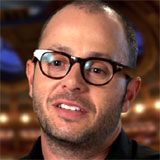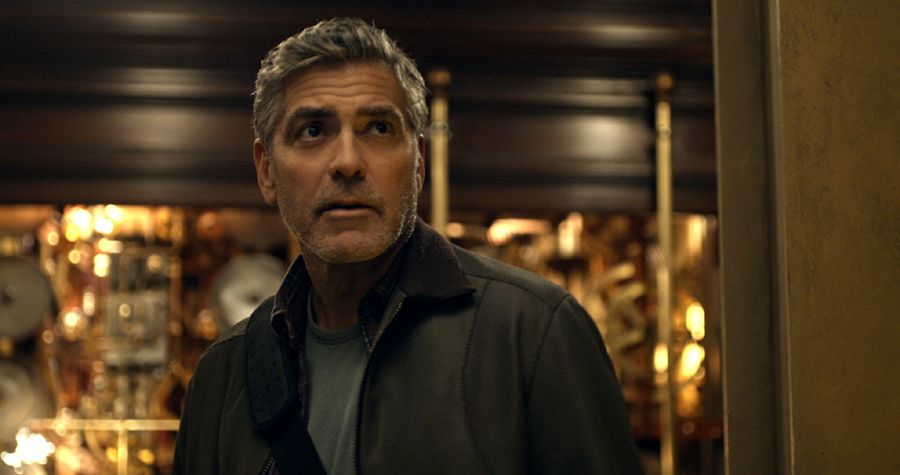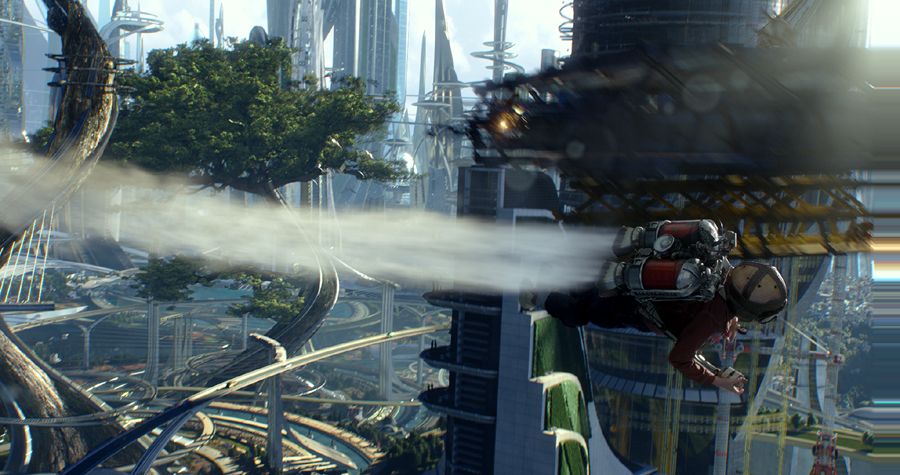Damon Lindelof knows the value of both creating and inheriting a brand.
A principal architect of the television drama “Lost,” the writer/producer also delivered a screenplay for “Prometheus” that served as a prequel to “Alien.” He helped to guide the further adventures of the Enterprise crew in “Star Trek Into Darkness,” and adapted both the semi-obscure comic “Cowboys & Aliens” and the bestselling novel “The Leftovers” for the big and small screens.
His latest film, Disney’s “Tomorrowland,” offered a unique opportunity: taking an evocative but largely undefined name widely recognized from the Disneyland theme park and using it as a banner for a new story that didn't have to adhere to any established canon, characters or continuity. The title was pre-sold, but the content remained fresh and mysterious in a way perfectly in tune with Lindelof's sensibilities.
Chatting with SPINOFF, Lindelof revealed the amount of freedom he and director Brad Bird were given by on "Tomorrowland," what it means to have a megastar like George Clooney jump aboard, and an item of personal interest he found among the artifacts in that mysterious box labeled "1952" purportedly found in a Disney office basement.
Spinoff Online: Tell me what was, for you, the creative thrill of trying to take the Tomorrowland concept and its Disney legacy, and put it into a story form?
Damon Lindelof: I think we live in a day and age where it’s really hard to make original movies, and you have to find sneaky ways to do that. And you have to find like a familiar idea: “Tomorrowland,” I really felt like one of the things that I’m not seeing is a positive future. I love the “Hunger Games” movies. I love it when robots try to wipe out humanity. I love zombies. But what about this other idea? Because I don’t want to live in those futures. I want to live in a bright, beautiful, sunny future where we sort of figure everything out. And how do you make a movie like that cool and present and relevant? I kind of figure, "Well, if I could get Brad Bird to direct it, and George Clooney to be in it, then it’s probably going to be both of those things." Simple, yeah. But here we are. It’s amazing.
What happens when George Clooney says yes to a project like yours? Was it a different experience for you, when somebody that huge in Hollywood says?
We do a little dance! I mean, I think that when Brad and I first started writing the script, we always imagined that this character would be a Clooney-type. And we wrote it with Clooney in mind. Then Brad and I were eating lunch one day and Brad said, "Maybe we should ask Clooney?" I was like, "Ah, he’s never going to do it." But it’s amazing. As my parents always told me, you never know until you ask. We went over to his house and we had a nice chat with him. And he read the script and he was in. I’m still sort of pinching myself because he doesn’t really do movies like this.
Review: Preachy "Tomorrowland" Reaches For the Future But Goes Nowhere
People always say this about actors all the time, and George’s case is true: He’s very down to Earth, incredibly self-aware, very funny, but most importantly, he is very gracious and grateful. I think that he doesn’t take any of his fame, his celebrity, his status for granted. He was plugging away for quite a long time before that happened to him. And he looks back at it all with great fondness. But I think he still considers himself a normal guy, because he is one.
Are you feeling more of a push from creators on your side to do these more original concepts? I know that Hollywood knows it has a built-in safety valve when it comes to established properties, things with name recognition. Are you guys on the creative side rallying to try to get new, fresh stuff out there?
We are. I mean, the job opportunities – if you look at a list of the things that are out there that I could get offered, almost all of them are sequels or comic book movies. If you want to make an original movie, you kind of have to make it yourself. So obviously, “Tomorrowland” is a pre-existing property; it’s tied to Disney. This was the only place that you could make a movie like this. But I do feel like what’s cool about it is, if you buy a ticket for this movie, you don’t know what it’s going to be about.
In a way that if you buy a ticket for “The Hunger Games” and you’ve read the book, or you buy a ticket for “Avengers 2,” even if you haven’t seen it yet, you know who’s going to be in it and you know roughly how it’s going to work. I think that it’s exciting in this day and age, in an Internet spoiler-ific age, that you can still see a movie that you don’t know the beginning, middle, and end of.
Given the tie-in to the theme park territory how much freedom did you have in developing your story?
I mean, it had a tremendous amount of freedom to be a story because it was just a word. It was like "Any story that you present us that has the word ‘Tomorrowland’ in it that you can build a movie around, that's the only mandate." It's not like, "OK, you need to have Space Mountain in it, there needs to be some reference to Buzz Lightyear and, preferably, Star Jets. As long as you cover those …" None of that happened. It was essentially '"Run with it." Not many constraints.
And what fascinated you about Disney the futurist? What was the thing when you did your research that was cool to learn about him and his interests?
What’s amazing is, you kind of think "Oh, my God, that guy – if he was living now, there’s no way that he would think of a positive future." But in the 1950s and 1960s, we were on the brink of worldwide annihilation. The guy lived through the Cuban Missile Crisis and the Cold War, not to mention World War II. So he had all these reasons to not have faith in humanity, and yet he still sort of felt like we were going to sort it out. The unbridled optimism, and the fact that he wasn’t afraid to say it – I think that anyone who comes out today and says, "Yeah, I’m an optimist, and I believe in a great future" gets sort of shouted down by the peanut gallery and Twitter.
What's your very favorite thing that you saw in that now famous real-life "mystery box" of unusual artifacts that Disney discovered in its archives and presented you with? What was the most intriguing piece in there?
I think there is correspondence between Walt Disney and Orson Welles, and as a huge Welles-phile, just the idea that those two were writing letters to each other in the early 1950s was sort of fascinating to me, because that's not a synergy that you think – and lo and behold, the tenor of the letters were polite, and sort of showed why those guys could never really collaborate on a project together. But I just love the idea that they almost did.
”Tomorrowland” opens today nationwide.



